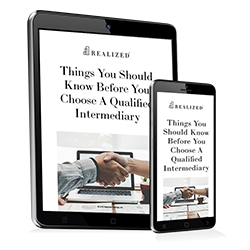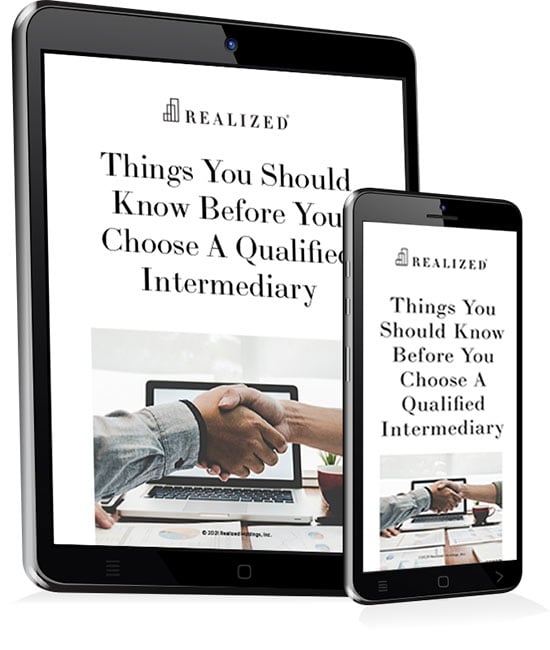
Consider this scenario for a moment: you recently sold a property and are preparing to enter into a 1031 exchange. You have everything in place, but soon learn that it is required to establish a Qualified Intermediary (QI) to complete the exchange – per IRS regulations. Who do you turn to?
There are many rules governing who can and can’t be a Qualified Intermediary, so it is best to review the disqualified parties first. According to the IRS, a Qualified Intermediary cannot be a family member, employee, financial connection, or agent of the taxpayer.
Family Members and Employees
This stipulation is fairly straightforward: the taxpayer cannot ask siblings, spouses, ancestors, or descendants to act as their Qualified Intermediary. Beyond family members, the taxpayer’s employees are also not allowed to serve as their Qualified Intermediary.
Financial Connections
The next rule is a bit more involved. If an individual has had any financial relationship with the taxpayer within the last two years, they cannot be their Qualified Intermediary. Here are some examples:
Let’s say that you and your friend, Anne, both work for the same corporation. If Anne owns more than 10% of the stock in that corporation, she cannot be your Qualified Intermediary, because the financial relationship is too close.
Branching off of that, let’s say that another friend of yours, James, is connected to you through multiple corporations or partnerships. If James owns more than 10% of each corporation/ partnership, he cannot be your Qualified Intermediary.
Here’s a third example: let’s say that another friend, Frank, is connected to a corporation in which you have no involvement, and you want to ask him to be your Qualified Intermediary. However, the corporation that Frank is connected to is controlled by the same group as a corporation you are involved with, such as a Parent-Subsidiary or Brother-Sister corporation. If this is the case, Frank cannot act as your Qualified Intermediary.
Lastly, someone who is a fiduciary or beneficiary of a trust that you are involved with cannot be your Qualified Intermediary.
Agents
As you prepare to make any important real estate-related decision, you will most likely want to ask your attorney, accountant, real estate agent/broker, or the investment banker managing your financial portfolio to act as your Qualified Intermediary. You have entrusted them with your greatest assets, so it makes sense that you would turn to them during the exchange process. However, CPAs, attorneys, investment bankers, and real estate agents/brokers fall under the ‘agent’ category, so they cannot act as your Qualified Intermediary.
Additionally, any business or individual who is affiliated with the agent also cannot act as a Qualified Intermediary. For example, if your real estate agent owns a property management company, every employee who works for that property management company cannot be your Qualified Intermediary.
Here’s the good news: there are some exceptions to the rule involving agents. Agents who conduct ‘routine’ services such as creating escrow accounts, forming trusts, or securing title insurance are permitted to become Qualified Intermediaries because these are considered ‘routine’ financial services.
The second exception is not quite as clearly defined by the IRS. To break it down, the exception allows agents to act as intermediaries only if they are working on a specific property type in the 1031 exchange. The specific property type refers to transactions where there will be no “gain or loss” on the property when the exchange occurs. This exception only applies to agents who have not worked with the taxpayer within the last two years.
This brings us to our next question.
Who Can Be Your Qualified Intermediary?
As long as the individual doesn’t fall into the categories listed above – family, financial relationship, agent, or employee – they can be your Qualified Intermediary.
If they don’t fall into those categories, they must apply for Qualified Intermediary status, which involves receiving a QI-EIN, which is a unique number assigned to the Qualified Intermediary by the IRS (EIN stands for “Employer Identification Number”).
Why is a QI-EIN necessary?
In every 1031 exchange, there is always a ‘withholding agent’ (the individual who distributes payment when the exchange closes). In order for the payments to be released, the Qualified Intermediary must provide a formal document, called a Form W-8IMY, to the withholding agent. The QI-EIN must be used on this document.
The Qualified Intermediary will be responsible for filing many other forms with the IRS when executing the 1031 exchange, including a 1042, 1042-S, 1042-T, 1099, 945, and 1096. The QI-EIN must be used on all of these forms. Additionally, the QI-EIN can only be used when the individual is acting in its capacity as a Qualified Intermediary, so it may be necessary for the QI to obtain an additional Employer Identification Number when he/she is not acting as a Qualified Intermediary.
A Qualified Intermediary can request a QI-EIN by submitting a document titled a Form SS-4 to the IRS. After the IRS receives the application, a QI-EIN will be issued to the applicant.
Final Takeaways
A Qualified Intermediary is one of the most critical parts of a 1031 exchange, as the transaction almost always cannot be completed without a QI present. When conducting an exchange, it is imperative to ensure that the Qualified Intermediary is experienced and thoroughly understands the various tax codes involved. It is equally as essential to ensure that your Qualified Intermediary has not been financially connected to you within the last two years and is not considered a relative, employee, or agent. The IRS does not take these factors lightly; failure to comply with what is mentioned here may lead to hefty penalty fees – or the IRS may prohibit the exchange from occurring altogether. It is not worth the risk!
To learn more about working with a Qualified Intermediary, call us at 512.871.0315.



